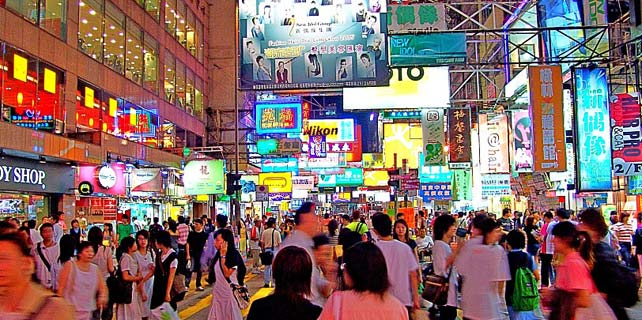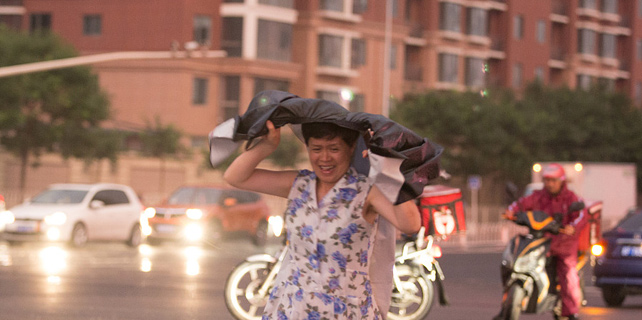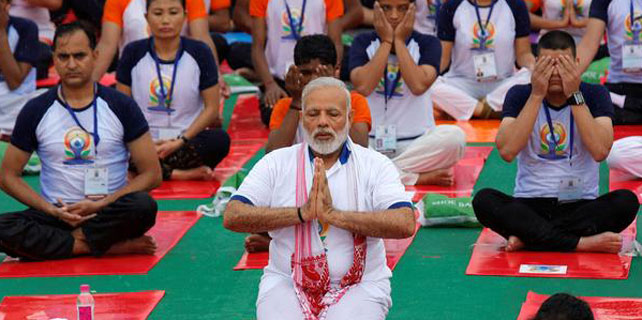Fairmont Beijing continues eco-friendly tradition with air-quality program
When an air quality examiner showed that indoor PM2.5 concentration was 5 micrograms at the Fairmont Beijing, a luxury hotel under AccorHotels, guests were amazed.
PM2.5 refers to particulate matter with a diameter of 2.5 microns or less, which is considered hazardous to human health. Its concentration is a major index for measuring air quality.
PM2.5 concentration indoors should be less than 75 micrograms per cubic meter for elderly people and children — the cutoff line for what is defined as "good" air outdoors, according to international standards.
The amazing air quality was the result of efforts from Fairmont and Blueair, a Sweden-based provider of best-in-class air purification solutions.
The two companies signed a partnership agreement on June 20 to provide state-of-the-art air purifying service, a "Blueair Zone", for the hotel to enhance guests' experience and well-being.
Blueair Pro air purifiers are currently installed in the hotel's 222 guest rooms and public areas.
"The ‘Blueair Zone' program is part of the hotel's vision for Planet 21, AccorHotels' global sustainable development program, which is to drive a positive change toward an innovative hospitality experience," said Foued El Mabrouk, vice-president of Operations, Luxury and Upscale, AccorHotels Greater China.
A survey made by the International Hotel & Restaurant Association showed that more than two-thirds of frequent travelers are concerned about air quality, he said.
"In particular, guests in the luxury and upscale hotel segment are looking for quality service," he noted.
Within the program, Blueair offers air quality expertise, on-site installation and a filter service program as well as a strong CSR foundation.
Blueair Pro products purify air in the surrounding public areas for guests. This partnership is based on the two companies' shared value of providing guests with a healthy environment and clean air, according to Annika Waller, chief marketing officer of Blueair.
"Stronger technology prowess and wider public involvement among the guests, hotels, partners, employees and local communities are AccorHotels' innovative efforts in our commitment to corporate social responsibility," said Mabrouk.
AccorHotels believes luxury isn't just reflected in spending, but also in guests' tastes, knowledge and awareness of environmental protection, sustainable development and CSR commitment, he said.
The hotel group launched a five-year Planet 21 program in 2011, a mature and multi-faceted program with specific objectives, actions and measurements to continuously achieve higher levels of sustainable performance.
In 2013, the company initiated a "Plant for the Planet" program.
Guests staying for more than one night in the hotel are invited to re-use their bath towels, then half of the saved laundry expenses go to planting trees in the host countries of the hotels.
In China, the campaign supported tree planting in Qinglong county, Hebei province.
As of 2016, the campaign had generated more than 200,000 yuan ($29,275) in donations and as a result, a total of 53,000 trees were planted.
The second phase (2016-20) focuses on participation of the public and society and sustainable development, the vice-president said.
In China, 97 percent of hotels use environmentally friendly products; 96 percent organize disease prevention training for employees; 91 percent of hotels recycle their waste; 93 percent of hotels purchase and promote locally-sourced products, to name a few.
In April, the hotel's "Clear your dish" campaign launched in some 100 hotels within the group won widespread recognition and praise.
When it comes to the Fairmont brand, it began to focus on sustainability in the early stages, about 25 years ago, as it started to build beehives in rooftop gardens at hotels in Toronto and Vancouver. All the company's hotels in North America now have similar rooftop gardens with beehives, including the Fairmont hotels in Dallas, Seattle, San Francisco, and the Fairmont at Yangcheng Lake.
Fairmont was the first luxury hotel brand in the world to develop and implement an on-site honeybee program.
"We put CSR at the core of our hotel operations with engagement and commitments of our employees, guests, partners and local communities. Fairmont is a pioneer in sustainability with a goal of improving the overall well-being of its guests," said Mabrouk.









